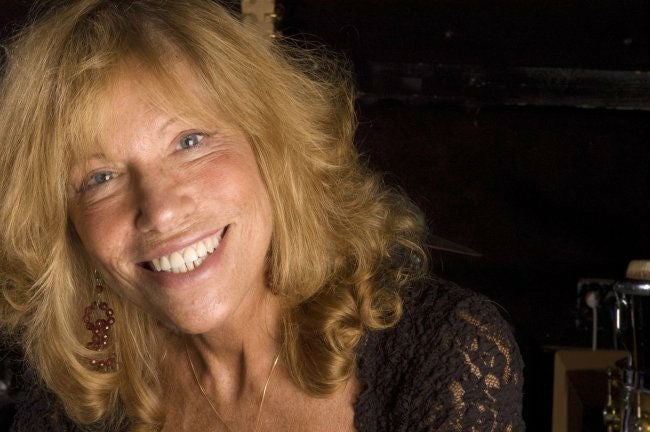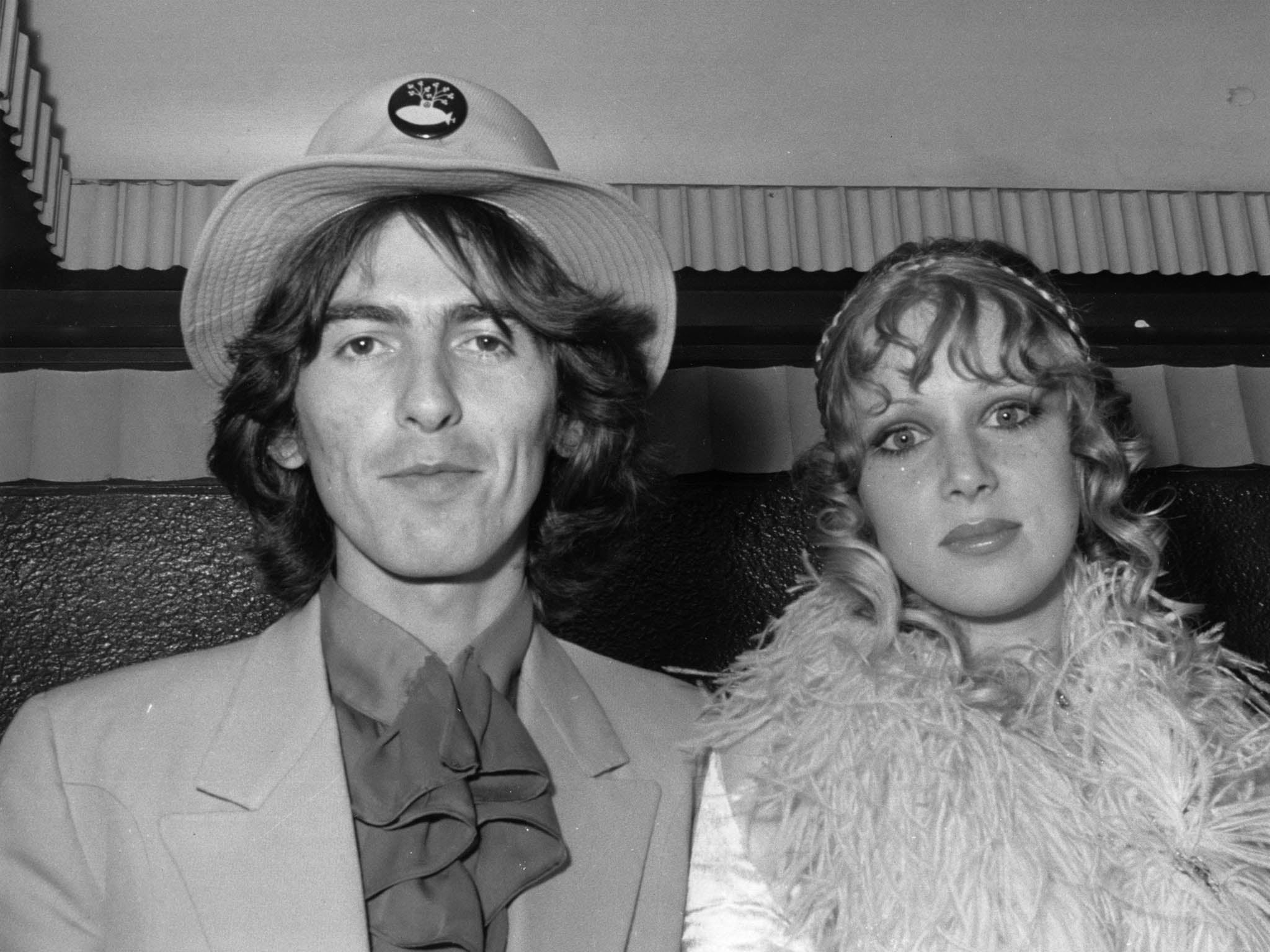Carly Simon revealed who 'You're So Vain' is about, but what about other mystery songs from Ed Sheeran's 'Don't' to Pulp's 'Common People'?
Carly Simon has finally admitted that Warren Beatty is one of the narcissistic lotharios in her 1972 hit ‘You’re So Vain’. But pop stars still love to tantalise fans by not revealing the targets of their songs

William Shakespeare and Carly Simon both knew that mystery sells. Shakespeare wrote powerful poetry about a mysterious “dark lady” while never revealing her (or, perhaps, his) identity. And, along with Simon, there is a chorus of pop stars who have followed the Bard’s lead in tantalising us with the subject of their passion or vitriol.
Simon recently disclosed that one third of her hit “You’re So Vain” is about Warren Beatty, but it was pretty much a slam-dunk that at least some of it was about the legendary Tinseltown lothario and she was careful to keep the subjects of the other two stanzas secret (although she claims she has whispered them very quietly under re-recordings…).
Shakespeare expert Dr Adele Lee, from Greenwich University, says this kind of reticence helps a work last.
“That’s the clever, wonderful thing about Shakespeare – he throws in an exotic ingredient in references to an unnamed mistress. They add an aura of mystery and exoticism that contributes to our enduring fascination with the poems.”
Adele (the singer, not the Shakespeare expert), whose new album has just outsold Taylor Swift’s latest by the gross national product of a medium-sized nation, won’t reveal the person whom she had hoped would “see my face and… be reminded/ That for me it isn’t over”, in lyrics from “Someone Like You”, one of the three million songs and counting that she has written so far in a bid to tell her ex that She Is Over Him.
Asked who the unlucky chap is, she has said, “who cares?”, which is one of those questions that contain their own answer.
Ed Sheeran won’t say who his “Don’t”, a no-holds-barred character assassination (“I never saw him as a threat/ Until you disappeared with him to have sex of course/ It’s not like we were both on tour/ We were staying on the same fucking hotel floor”), is about. He maintains, with petulantly poor logic, that “everyone knows anyway”.
Well, Ed, “everyone” thinks it’s about Ellie Goulding, and possibly Niall Horan of One Direction, and that kind of huffishness might well be guaranteed to send a girl packing down the hotel corridor thinking “you need me, I don’t need you”.

Similarly Alanis Morissette won’t spill the beans on “You Oughta Know”, despite one of the potential targets, the American comedy actor David Coulier, claiming he was the “Mr. Duplicity” that she hopes can feel it every time she scratches her nails down someone else’s back. Ouch, and more curious logic: presumably it’s either an enjoyable sensation or an unpleasant one, for both.
Enjoy unlimited access to 100 million ad-free songs and podcasts with Amazon Music
Sign up now for a 30-day free trial. Terms apply.
ADVERTISEMENT. If you sign up to this service we will earn commission. This revenue helps to fund journalism across The Independent.
Enjoy unlimited access to 100 million ad-free songs and podcasts with Amazon Music
Sign up now for a 30-day free trial. Terms apply.
ADVERTISEMENT. If you sign up to this service we will earn commission. This revenue helps to fund journalism across The Independent.
There are songs where, despite the reticence of the singer, the subject is a little too transparent. Despite calling a song “Dear John”, and writing, “Don’t you think 19’s too young/ To be played/ By your dark, twisted games/ When I loved you so”, Taylor Swift won’t say the song is about John Mayer. That didn’t stop him saying he was humiliated and replying with his “Paper Doll”: “You’re like 22 girls in one/ And none of them know what they’re running from”. Er, you John, probably.

The most rock’n’roll politician in the world, former Greek finance minister Yanis Varoufakis, also thinks the subject of Jarvis Cocker’s “Common People” (“She came from Greece she had a thirst for knowledge/ She studied sculpture at Saint Martin’s College”) is blatant. He maintains his now wife was “the only Greek student of sculpture at St Martin’s at that time”.
She has said nothing publicly, which is perhaps advisable, as wrongly claiming to be referenced in what we might call a chanson a clef can be embarrassing: Beatty trumpeted some years ago that “You’re So Vain” was about him, which now creates the delicious situation in which the lyric “I bet you think this song is about you” is revealed to be both true and, as a blow to the ego, even more untrue.
Even the most celebrated subject of classic chansons a clef has, apparently, also got it wrong. Despite her certainty, Pattie Boyd was not, according to George Harrison, the inspiration for “Something”. “Everybody presumed I wrote it about Pattie, but actually, when I wrote it, I was thinking of Ray Charles,” the former Beatle bombshelled.
Boyd shouldn’t be too upset, though. Her extensive catalogue still includes Eric Clapton’s “Layla”, “Wonderful Tonight”, and “Bell Bottom Blues”, Harrison’s “I Need You”, and, for all we know, “The Birdie Song”, too.
Perhaps Harrison was ungallantly reclaiming the song, as Noel Gallagher apparently did with “Wonderwall”.
As Meg Mathews told this newspaper: “When we got divorced, he decided to take the song back.” Gallagher was unrepentant: “It’s a song about an imaginary friend.” Like John Lennon, Noel? This kind of domestic squabble can only damage the mystique of a song, making it more like a box of well-thumbed Beatles CDs to be argued over during a break-up.
Sadly, no one has claimed credibly to be Lola, who “walked like a woman and talked like a man” in the Kinks’ 1970 hit of the same name. Writer Ray Davies has said he/she was based on a transgender woman who spent the night with the band’s co-manager, Robert Wace, while Kinks drummer Mick Avory says the inspiration came from Davies accompanying him to drag bars in west London.
Most intriguing is the suggestion that Lola is Andy Warhol’s transgender muse Candy Darling, who was namechecked in Lou Reed’s “Walk on the Wild Side”, and with whom Davies admits he went to dinner, but insists there was no being picked up and sat on a knee and told, “dear boy won’t you come home with me”. We believe you, Ray.
So will we still be wondering who Lola is, and who the other two verses of “You’re So Vain” are about, and whether the subject of Adele’s by-then canon of 50 numbered albums, three operas, and four-volume mis-lit memoir, knows She Is Definitely Over Him (Definitely, Right, You Got That?), 400 years hence, just as we are still speculating on Shakespeare’s “dark lady”? Maybe so, because, according to Dr Lee, we can’t even be sure these people are real.
“It could be made up in the name of art,” she tells me.
But that’s never going to stop us searching, or stop singers singing about lovers. Because, as The Beautiful South put it in their 1989 No 2 “Song for Whoever”, about songwriters and their partners: “The number one I hope to reap/ Depends upon the tears you weep.”
Join our commenting forum
Join thought-provoking conversations, follow other Independent readers and see their replies
Comments
Bookmark popover
Removed from bookmarks